(781) 944-6761
Online
(781) 944-6761
Online
Implant Dentistry
Dental implants are small titanium posts that replace the roots of missing teeth. They are inserted into your jawbone during a minor surgical procedure that takes place in the dental office. After the implant has been placed in your jawbone, a completely lifelike porcelain tooth crown is attached. In some cases, the implant needs to fuse with the bone for several months before it is permanently crowned; in other cases, you can have new (but temporary) teeth the same day your implants are placed.
You can replace a single tooth, multiple teeth or all your teeth with implants. You don't even need one implant for every missing tooth. As few as two Implants can support a removable lower denture, while as few as four implants can provide a full, permanent set of top or bottom teeth.
Most people find dental implant surgery very easy to tolerate. Any post-operative discomfort can usually be managed with over-the-counter anti-inflammatory medication such as ibuprofen or OTC pain-relievers. Ice can also be helpful.
At the outset, implants are more expensive than other tooth-replacement methods such as dentures or bridgework. But they also last many years longer and in fact should never need replacement. So they offer the best, most cost-effective option when viewed as a long-term investment in your health, comfort and well-being.
They require exactly the same care as natural teeth: daily brushing and flossing, along with regular dental checkups and professional cleanings. Although implant teeth will never decay, the gum tissues around them can become inflamed or infected in the absence of good oral hygiene. Properly cared-for dental implants should last a lifetime.
There's a good chance that you are, but this can only be determined after a complete oral examination that includes x-rays of your jaws. Please schedule a consultation to begin the exciting process of restoring your smile and bite.
Looking to replace single or multiple teeth? Our implant dentist can be the best option in understanding more about dental implants. Call us at 781-944-6761 to learn more! Our dental office serves the communities of Reading, North Reading, wilmington, Wakefield, Stoneham, Lynnfield, Woburn.
Replacing Missing Teeth
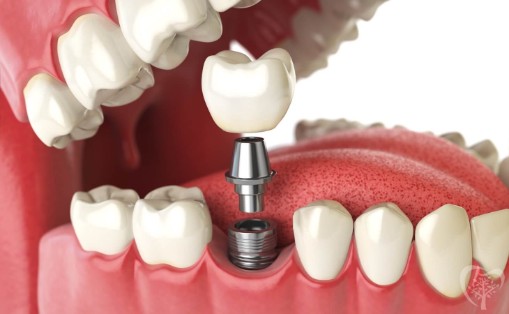
Your teeth affect your whole body. When they’re healthy, you’re healthier too. A missing tooth can affect your bite, speech and eating choices. As you rely more on your remaining teeth, you increase the chance they will wear out prematurely, or be damaged or lost. You may also experience headaches and/or jaw pain.
Who would want their appearance and health to deteriorate? That’s the natural consequence of missing teeth – the jaw literally melts away. Generally, people will lose 25% of their supporting jawbone structure within the first year after tooth loss. Dental implants are more easily placed when teeth are first extracted because bone replacement becomes more complex as time passes. The great news? Implants act just like your natural teeth. They safeguard and preserve your bone structure, oral health and appearance. Your dentist and the implant surgeon will provide you with options so that you can make the most informed decision concerning tooth replacement.
Overview of Implant Placement
The Dental Implant Surgical Procedure
The procedure to place a dental implant takes 30 to 60 minutes for one implant and only 2 to 3 hours for multiple implants. The number of appointments and time required, vary from patient to patient. The surgeon will bring great precision and attention to the details of your case.
Prior to surgery, you may receive antibiotics and for greater comfort, intravenous sedation or nitrous oxide (laughing gas). These options are discussed with you at your consultation appointment. A local anesthetic will be administered to numb the area where the dental implant will be placed.
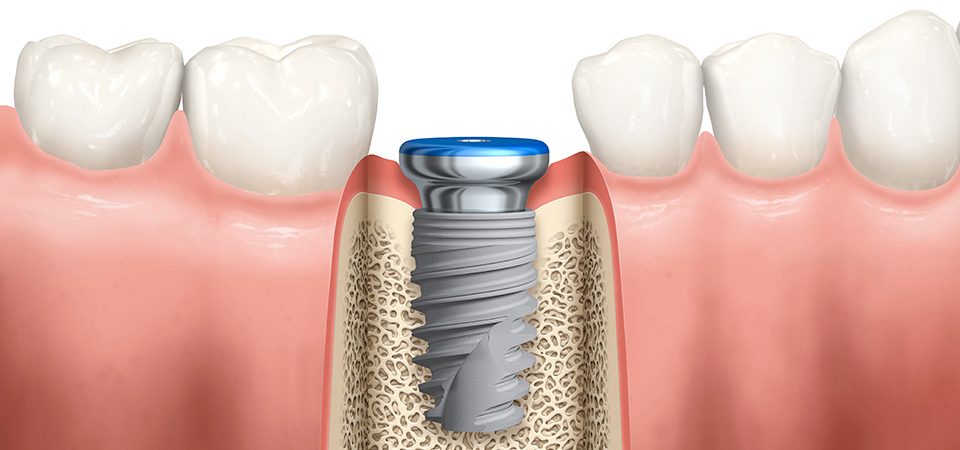
Missing All Upper or Lower Teeth
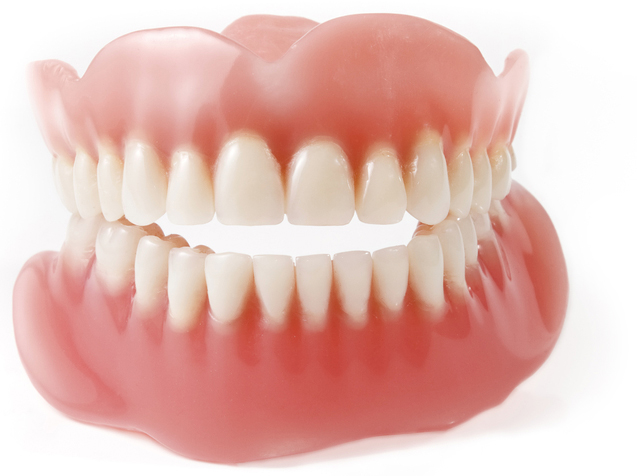
Although many patients have no problem wearing an upper denture, some people find it difficult to wear and eat with lower dentures. Several implant-supported replacement options are available if you are missing all of your lower teeth.
Ball Attachment Denture
One option is to have two implants placed in your lower jaw and a denture made that snaps onto these implants. This option allows your lower denture to be more stable while chewing than without implants. However, there will still be movement of your lower denture, and sore spots will occur if any food particles, especially seeds, are caught under it. As with all removable replacement teeth, you still will need periodic appointments for denture adjustment.
Bone Grafting for Implants
Do I have enough bone for dental implants?
After tooth extraction, if the walls of the socket are very thick, they will usually fill naturally with bone in two to three months. However, when the walls of your socket are very thin (such as in your upper and lower front teeth), this type of healing will not be as predictable. In these situations, a bone graft is often placed at the time of tooth extraction to help your body fill in the empty socket with bone. This step will maintain the width and volume of bone you will need for implant placement several months later.
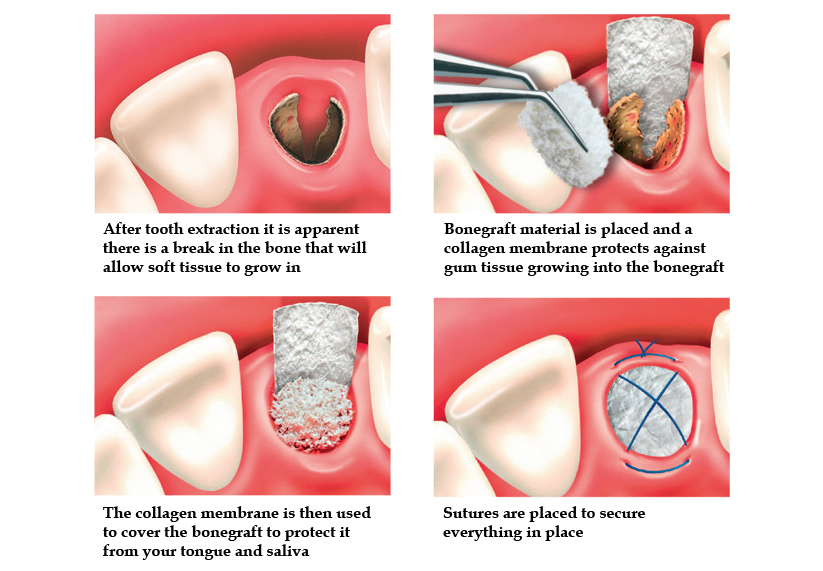
Implant Supported Overdenture
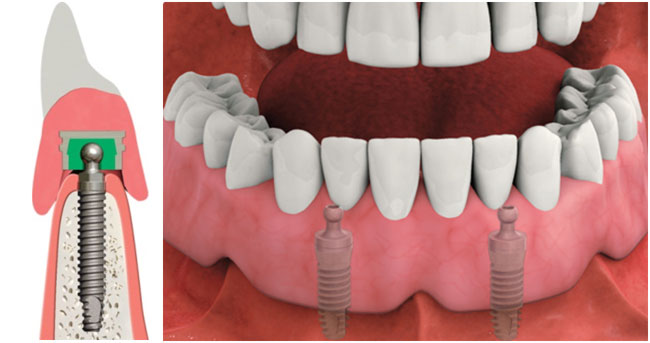
An Implant Supported Overdenture is a contemporary restoration that has revolutionized the way surgeons and dentists think of replacing a full set of teeth. Standard dentures are unsecured prostheses with inherent limitations. Most often, dentures are painful, inconvenient and unstable. Such dentures can make chewing foods difficult, limiting the foods that you once enjoyed.
Modern dentistry can help with implant supported dentures. The Implant Supported Overdenture treatment concept replaces your missing teeth with a full dental bridge supported by dental implants. Fewer implants are needed and overall treatment time and cost are reduced.
After Implant Placement
What can I use for teeth while the implants heal?
Many options are available, and they are tailored to your specific requirements. If you need a replacement tooth while the implants are healing, temporary removable teeth or a temporary bridge can be made. If all of your teeth are missing, we can usually modify your present complete denture or make you a new temporary denture. If you would prefer non-removable teeth during the healing phase, temporary transitional implants usually can be placed along with the permanent implants, and temporary teeth may be made and inserted the same day. Depending on your particular situation, some implants can be placed and “loaded” immediately. This means a temporary or permanent replacement tooth can be placed on, or shortly after, the day the implant is placed.

Cost of Dental Implants
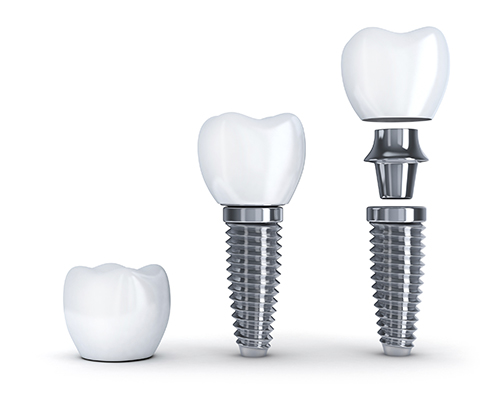
Dental implants have been available for several decades. However, for most patients, they are still a relatively new concept. When considering the cost of dental implants and comparing quotes, there are several important points that should be kept in mind.
Longevity
When comparing the cost of dental implants to other tooth replacement methods such as dentures and bridges, it is important to take into consideration the longevity offered by dental implants that is not always afforded by other, more traditional methods.